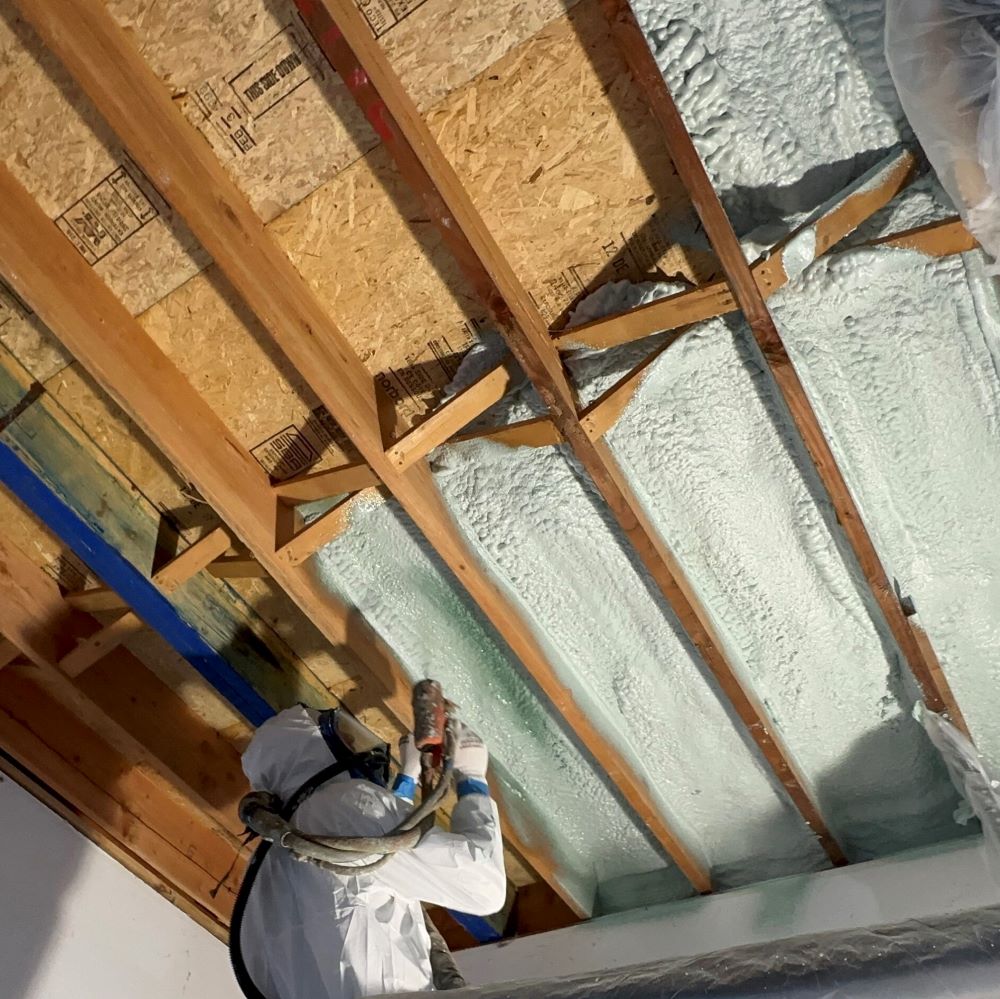Spray Foam Insulation
What is Spray Foam?
Spray foam is formed by combining two materials which, when mixed, expand to many times their original volume. When sprayed into the required place, our spray foam services will fill the gaps cleanly and neatly, in order to provide a virtually airtight seal that adds thermal insulation.
Thank you for reading this post, don't forget to subscribe!How We Use Spray Foam?
Spray foam insulation is an invaluable product that can be used for everything from packaging for fragile, expensive items, to insulating entire buildings. It’s now regarded as a safer and more cost-effective insulation alternative to previous materials, such as fibreglass. Depending on the application, spray foam can be applied more or less densely to form a rigid or softer, more flexible material.

Common Insulation Applications

Residential
Walls, floors, ceiling, etc. Insulate for more comfortable environment, a year round work or additional living space.

Commercial
Solve instulation build Spray Foam is the area’s commercial insulation expert our goal is to save your business money on energy bills.

Basements
When it comes to basement insulation, the SFI application does it all with one install – it seals a given space totally airtight.

Garages
Closed Cell Foam will keep your insulating cost very reasonable, seal your garage from the elements, and insulate any space above or next to your garage.

Attics & Roofing
Comfort and Energy Savings. We’ll seal your attic and roof properly for a more comfortable home, or usable storage.
What is diference between “Closed Cell” and “Open Cell” Insulation?
When it comes to choosing insulation for your home or building, there are two primary types to consider: closed-cell and open-cell insulation. While both types of insulation are designed to improve energy efficiency and indoor comfort, there are some key differences between the two that are important to understand.
Closed-cell insulation is a type of spray foam insulation that is made up of small, dense cells that are tightly packed together. This density gives closed-cell insulation a higher R-value per inch of thickness, which means it provides a better thermal barrier than open-cell insulation. Additionally, closed-cell insulation is more resistant to moisture and can even serve as a vapor barrier in some cases.
Open-cell insulation, on the other hand, is made up of larger, less dense cells that are filled with air. This type of insulation is softer and more pliable than closed-cell insulation, and it has a lower R-value per inch of thickness. However, open-cell insulation is often more affordable than closed-cell insulation, and it is easier to install in hard-to-reach areas such as attics and crawl spaces.
One of the primary benefits of open-cell insulation is its ability to absorb sound waves, which makes it a good choice for soundproofing applications. Additionally, open-cell insulation is more breathable than closed-cell insulation, which can help to prevent moisture buildup and reduce the risk of mold and mildew growth.
Overall, the choice between closed-cell and open-cell insulation will depend on the specific needs of your home or building. If you are looking for maximum energy efficiency and moisture resistance, closed-cell insulation may be the better choice. If affordability and ease of installation are a priority, open-cell insulation may be the better choice. It is always best to consult with a professional insulation contractor to determine which type of insulation is best suited for your specific needs.

Benefits of Spray Foam Insulation?
Versatile Application
Attic spray foam insulation has a versatile application method, which gives it a significant advantage over traditional options. It can be applied in narrow areas, blocking gaps and cracks that allow heat transfer.
Reduced Energy Consumption
All types of insulation are designed to stop heat transfer and reduce energy cost, but spray foam can cause the biggest impact in comparison to fiberglass and other types of insulation. An average house can lose up to 40% of its energy through heat loss and air filtration, and since spray foam insulation seals off all gaps, it substantially reduces energy costs.
Prevents Air Infiltration
Air infiltration is bad because it carries heat, but it can also force your house to draw up air from the ground. Homes with poor insulation draw up to 40% of their air from the ground. Plus, if your crawl space is not properly insulated or has no vapor barrier, it will absorb moisture. This can lead to rot, pest infestations, and mold development among other issues.
Stops Vapor & Moisture Transfer
Your attic or basement can also be affected by high moisture levels, but installing closed-cell spray foam attic or basement insulation will safeguard it from any moisture transfer or damage. Similarly, to your crawl space, your attic or basement is prone to harboring pests and developing mold, so keeping moisture levels down is critical to your attic’s or basements well-being.
Increases Comfort Levels
Damp, moist attics are often the source of foul odors and can cause cold floors and other temperature discrepancies. Installing spray foam attic insulation will increase comfort levels for your entire family due to the lack of bad smells, sudden temperature changes, or health risks that may result from moist attics.
Durable Insulation
Spray foam insulation is designed to last indefinitely, producing fewer used materials or repair costs. Spray foam insulation is dense and will strengthen your house’s structural integrity once applied to your environment walls. Closed-cell insulation is water-resistant as well, so you won’t have to worry about water damage in the winter months.

